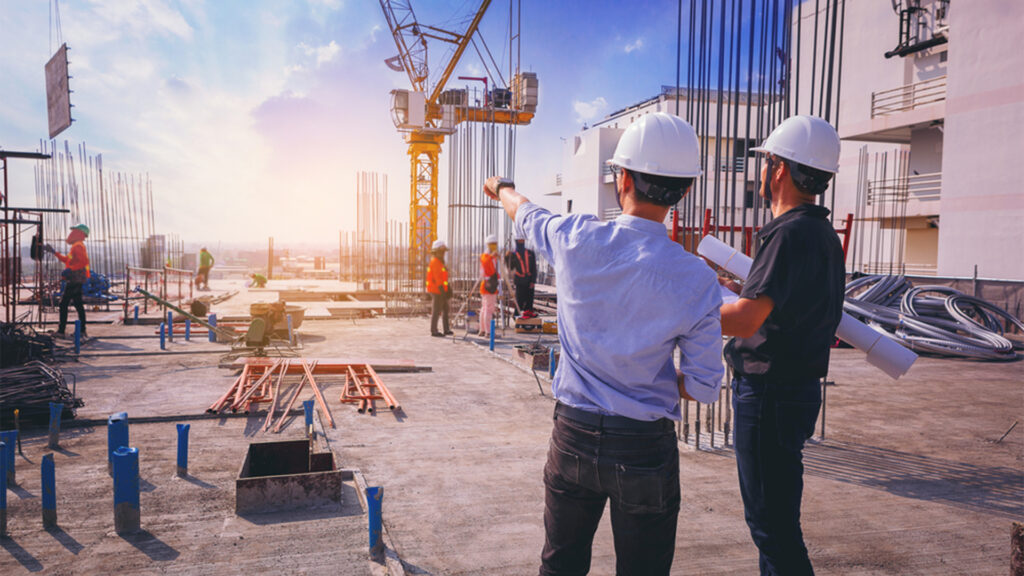Urbanization is a defining trend of the 21st century, particularly in developing countries where the movement of people from rural to urban areas is rapidly increasing. This shift brings both opportunities and challenges, significantly impacting the construction industry. Global construction companies and international construction firms are at the forefront of this transformation, adapting to the demands and complexities of urban growth.
Accelerating Demand for Housing
One of the most immediate effects of urbanization in developing countries is the soaring demand for housing. As people migrate to cities in search of better employment opportunities and living conditions, the need for affordable and adequate housing increases. This demand pressures the construction industry to deliver housing solutions quickly and efficiently.
Global construction companies are leveraging innovative construction methods to meet this demand. For instance, the use of modular and prefabricated construction allows for the rapid assembly of housing units, significantly reducing construction time and costs. These methods are being employed in cities like Lagos, Nigeria, and Nairobi, Kenya, where the need for housing is critical. By adopting such techniques, international construction firms can provide scalable solutions to the housing crisis in developing urban areas.
Infrastructure Development and Modernization
Urbanization necessitates substantial investments in infrastructure development. Cities need reliable transportation networks, water supply systems, sewage facilities, and energy grids to support growing populations. The challenge lies in building and modernizing this infrastructure in a way that is sustainable and resilient to future demands.
Global construction companies are playing a vital role in developing robust infrastructure in developing countries. Projects such as the Bus Rapid Transit (BRT) systems in cities like Jakarta, Indonesia, and Dar es Salaam, Tanzania, exemplify how international construction can transform urban mobility. These projects not only improve transportation efficiency but also reduce congestion and pollution, contributing to a better quality of life for urban residents.
Economic Growth and Job Creation
Urbanization drives economic growth by creating new business opportunities and jobs. The construction sector, in particular, benefits from this economic activity, as it is directly involved in building the infrastructure and housing needed for urban expansion. This growth, in turn, generates employment for a wide range of skilled and unskilled workers.
International construction firms contribute significantly to job creation in developing countries. By undertaking large-scale projects, these companies provide employment to thousands of workers, helping to alleviate poverty and boost local economies. Moreover, the presence of global construction companies often leads to the transfer of knowledge and skills, enhancing the capabilities of the local workforce and fostering long-term economic development.
Challenges of Urban Planning and Sustainability
The rapid pace of urbanization presents several challenges, particularly in terms of urban planning and sustainability. Unplanned urban growth can lead to overcrowded and poorly serviced areas, exacerbating problems such as traffic congestion, pollution, and inadequate housing. Ensuring that urban expansion is well-planned and sustainable is crucial for the long-term viability of cities.
Global construction companies are increasingly focusing on sustainable urban planning to address these challenges. This includes incorporating green building practices, using sustainable materials, and designing energy-efficient buildings. For example, the Eco-City project in Tianjin, China, showcases how sustainable urban planning can create a livable and environmentally friendly urban environment. By integrating sustainability into their projects, international construction firms can help developing countries build cities that are resilient and adaptable to future challenges.
Social and Environmental Impacts
Urbanization can have significant social and environmental impacts, particularly in developing countries where resources and infrastructure may be limited. Rapid urban growth can strain existing services, leading to issues such as inadequate healthcare, education, and sanitation. Additionally, the environmental impact of construction activities, including deforestation, soil erosion, and air pollution, needs to be managed carefully.
Global construction companies must consider these social and environmental impacts in their projects. Engaging with local communities and stakeholders is essential to ensure that construction activities do not disproportionately affect vulnerable populations. Implementing environmental management plans and adhering to international sustainability standards can help mitigate the negative impacts of construction on the environment.
The Role of Technology and Innovation
Technology and innovation play a crucial role in addressing the challenges of urbanization in developing countries. Advances in construction technology, such as building information modeling (BIM), drones, and 3D printing, are enhancing the efficiency and quality of construction projects. These technologies enable better planning, reduce costs, and improve the sustainability of construction activities.
International construction firms are at the forefront of adopting these technological innovations. For instance, the use of BIM in large infrastructure projects allows for better coordination and management, reducing errors and delays. Similarly, drones are being used for site surveys and inspections, providing real-time data that enhances decision-making processes. By embracing these innovations, global construction companies can deliver more effective and sustainable solutions for urban development.
Future Prospects and Opportunities
The future of urbanization in developing countries holds significant opportunities for the construction industry. As cities continue to grow, the demand for housing, infrastructure, and services will remain high. Global construction companies are well-positioned to capitalize on these opportunities by providing innovative and sustainable solutions that meet the needs of rapidly urbanizing populations.
Moreover, international construction firms can play a pivotal role in shaping the future of urban development. By partnering with governments, NGOs, and local communities, these companies can contribute to creating cities that are inclusive, resilient, and sustainable. The construction industry’s ability to adapt to the challenges and opportunities of urbanization will be crucial in ensuring that developing countries can build a prosperous and sustainable future for their urban populations.
Urbanization in developing countries is driving profound changes in the construction industry. Global construction companies and international construction firms are essential in addressing the challenges and seizing the opportunities presented by this trend. Through innovation, sustainability, and collaboration, the construction industry can play a pivotal role in shaping the future of urban development in developing countries.







